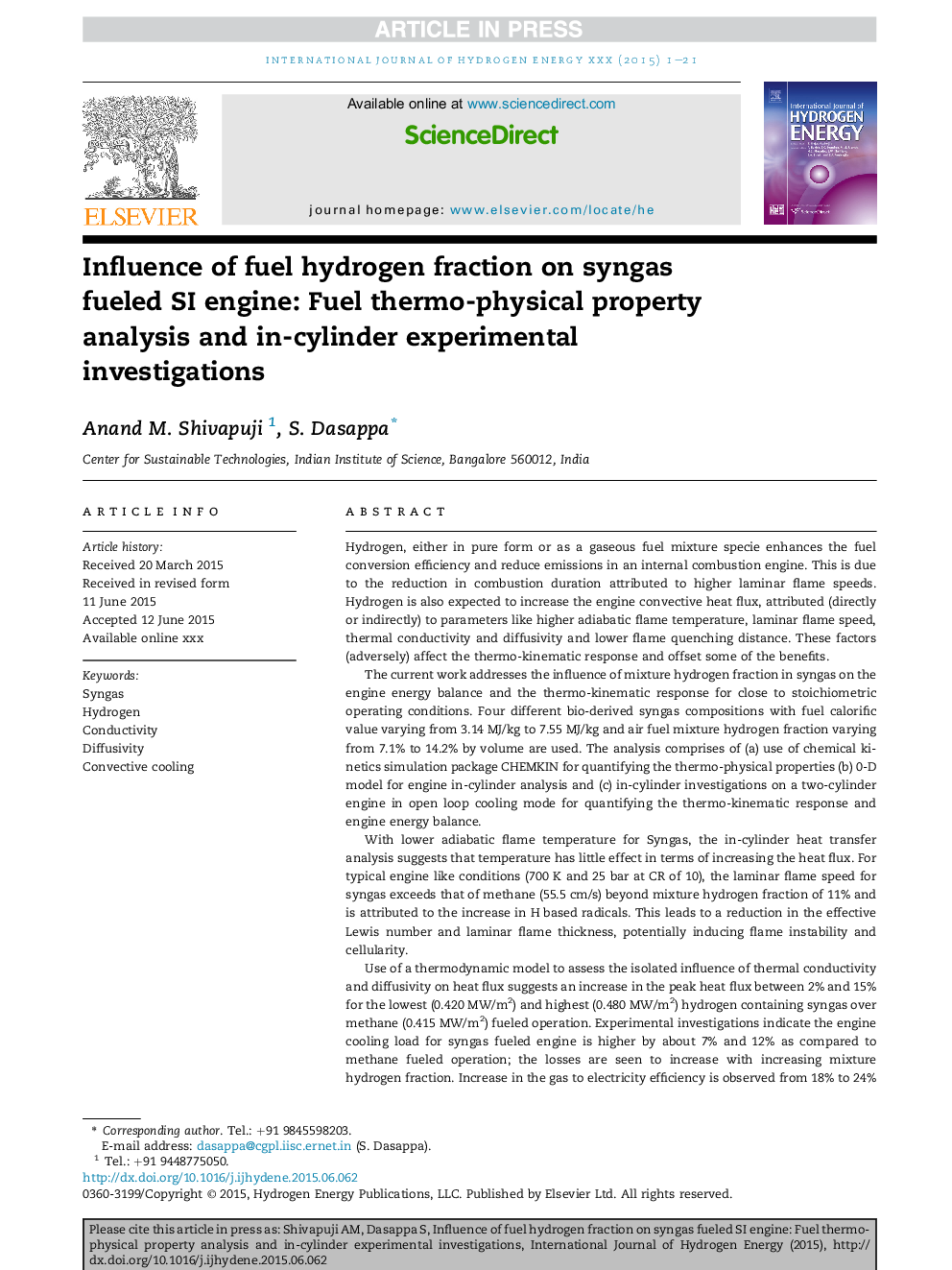| کد مقاله | کد نشریه | سال انتشار | مقاله انگلیسی | نسخه تمام متن |
|---|---|---|---|---|
| 7714909 | 1497441 | 2015 | 21 صفحه PDF | دانلود رایگان |
عنوان انگلیسی مقاله ISI
Influence of fuel hydrogen fraction on syngas fueled SI engine: Fuel thermo-physical property analysis and in-cylinder experimental investigations
دانلود مقاله + سفارش ترجمه
دانلود مقاله ISI انگلیسی
رایگان برای ایرانیان
کلمات کلیدی
موضوعات مرتبط
مهندسی و علوم پایه
شیمی
الکتروشیمی
پیش نمایش صفحه اول مقاله

چکیده انگلیسی
Use of a thermodynamic model to assess the isolated influence of thermal conductivity and diffusivity on heat flux suggests an increase in the peak heat flux between 2% and 15% for the lowest (0.420Â MW/m2) and highest (0.480Â MW/m2) hydrogen containing syngas over methane (0.415Â MW/m2) fueled operation. Experimental investigations indicate the engine cooling load for syngas fueled engine is higher by about 7% and 12% as compared to methane fueled operation; the losses are seen to increase with increasing mixture hydrogen fraction. Increase in the gas to electricity efficiency is observed from 18% to 24% as the mixture hydrogen fraction increases from 7.1% to 9.5%. Further increase in mixture hydrogen fraction to 14.2% results in the reduction of efficiency to 23%; argued due to the changes in the initial and terminal stages of combustion. On doubling of mixture hydrogen fraction, the flame kernel development and fast burn phase duration decrease by about 7% and 10% respectively and the terminal combustion duration, corresponding to 90%-98% mass burn, increases by about 23%. This increase in combustion duration arises from the cooling of the near wall mixture in the boundary layer attributed to the presence of hydrogen. The enhancement in engine cooling load and subsequent reduction in the brake thermal efficiency with increasing hydrogen fraction is evident from the engine energy balance along with the cumulative heat release profiles.
ناشر
Database: Elsevier - ScienceDirect (ساینس دایرکت)
Journal: International Journal of Hydrogen Energy - Volume 40, Issue 32, 24 August 2015, Pages 10308-10328
Journal: International Journal of Hydrogen Energy - Volume 40, Issue 32, 24 August 2015, Pages 10308-10328
نویسندگان
Anand M. Shivapuji, S. Dasappa,